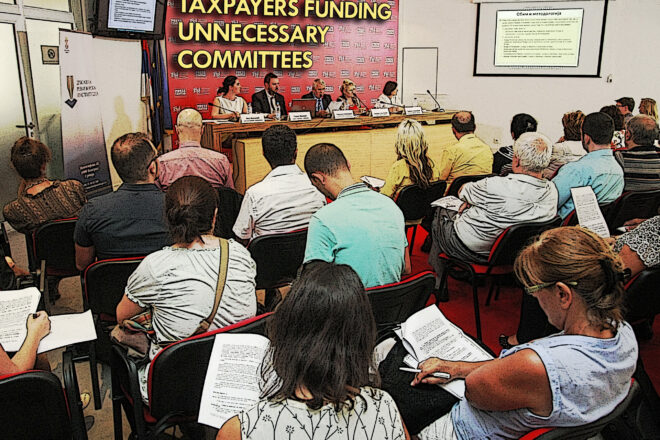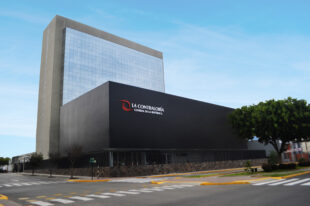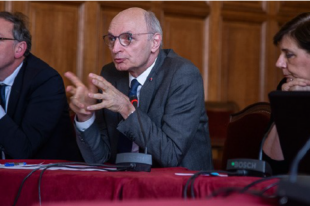SAI Serbia: “Taxpayers Funding Unnecessary Committees”

The State Audit Institution (SAI) of the Republic of Serbia conducted a performance audit on the “Justification for Establishing Committees and Other Permanent and Temporary Working Bodies in the Public Sector” to address the issue of taxpayer money (in the hundreds of millions of dinars) being spent on committee payments with no clear criteria and control of the work for which these committees have been formed. The audit, conducted from July 2015 to May 2016, was published in July 2016, and aimed to:
- Determine the justification(s) used to establish committees and working bodies.
- Establish whether these entities conducted tasks and realized defined goals efficiently.
- Issue recommendations for improving the state of affairs in this field.
A large number of committees and other working bodies are being established in the public sector of the Republic of Serbia, and significant funds are allocated for this each year. Establishing, selecting and disbursing compensation to committee members (and other permanent and temporary working bodies) is often done with no defined criteria and benchmarks, which gives rise to the potential for fiscal abuse due to the broad authorizations given to management.
To acquire basic data on committees, the SAI sent 191 questionnaires to public funds beneficiaries. Based on quantitative and qualitative criteria, 14 auditees were selected, which included the Secretariat General of the Government of the Republic of Serbia; Ministries (Education, Science and Technological Development, Justice; and Finance); Cities (Pancevo, Cacak and Sabac); and Municipalities (Ruma, Backa Palanka, Merosina, Pecinci, Zitoradja, Kovin and Backi Petrovac).
Analysis of the submitted data showed that within the 14 auditees selected, there were 488 committees in 2014, totaling 3,332 hired members. Nearly 67% of the 488 committees received funds for compensation and 324 committees that received those funds held 2,652 sessions. Roughly 2,200 members received compensation amounting to 364.8 million dinars (3,015,915 Euros).
Mr. Radoslav Sretenović, SAI President and Auditor General, provided additional results at a press conference dedicated to the audit report presentation.
“During the audit process, we concluded that auditees did not keep records (single or comprehensive) on committees; founders largely did not define deadlines for work completion and/or committee reporting methods. There were also cases where goals or tasks were not defined, greatly affecting work efficiency. Some auditees had no defined criteria (sometimes no criteria at all) for committee establishment, the number of members necessary nor the compensation for working on a commission basis, leading to the risk of overspending. In several instances, committees’ work often overlapped regular activities, and managers did not review committee existence justification and appropriateness, resulting in an extraordinary amount of committees being formed along with significant funds being allocated for their work,” Sretenovic highlighted.
LARGE NUMBER OF VARIOUS COMMITTEES IN THE PUBLIC SECTOR OF THE REPUBLIC OF SERBIA
Ms. Svetlana Toma Anokic, Supreme State Auditor in the Performance Auditing Sector, reiterated Sretenovic’s remarks about the overlapping nature of activities belonging to core competencies of auditees. She provided examples of this intersecting phenomenon, including an inventory committee given the task to conduct an inventory count of movable and immovable property and monetary assets, as well as a public procurements committee, where public officials received additional funds for jobs within their core scope of work. Anokic also addressed the portion of the performance audit that determined a large number of committees had no defined tasks and goals, in addition to undefined deadlines for job completion reporting methodologies.
She mentioned that, for ten years of work performed by the Committee for Drafting Civil Code, more than 134 million dinars (1,107,820 Euros) have been spent, and the only result to show for this time and money is a rough draft of the law. Anokic remarked that there were some municipality representatives questioned during the audit who admitted that certain committees were established simply to satisfy political and party affiliation appetites.
Anokic went on to highlight other ill-formed committee examples of particular interest that were brought to light during the audit process, including the committees for Destruction of Seals and Stamps, Reviewing Vehicle Adequacy for Taxi Transportation, Renting Out Billboards, and Popular Policy.
RECOMMENDATIONS OF THE STATE AUDIT INSTITUTION
The SAI issued recommendations to the Government of the Republic of Serbia:
- To determine and reconsider the amount of permanent working bodies, number of members and rights to compensation in the public sector, and to define such criteria via enactments in this field.
- To determine benchmarks, criteria for setting the compensation amounts for work accomplished by a president and committee members and other temporary working bodies in the public sector.
The SAI also issued recommendations to auditees:
- To reconsider justification for establishing committees and other working bodies (except for those stipulated by the law).
- To clearly define (when establishing committees and other working bodies), goals and tasks, number of members, deadlines for job completion, compensation amounts, committee work results, reporting manners, as well as methods associated with work control.
- To reconsider the need for payment of compensations (and the amounts) for working on committees and to initiate legislative change (and revisions to other regulations and enactments) that control committee compensation.
Note: Euro figures based on median exchange rate of the dinar according to the National Bank of Serbia as of December 31, 2014.
This is the third in a series of performance audit reports conducted by the SAI of the Republic of Serbia. The first Performance Audit Report, published in 2014, was titled “Management of Company Vehicles of Direct Budget Beneficiaries of the Republic of Serbia.” The second performance audit was published in 2015, when the SAI conducted an audit titled “Utilization of Real Estate Owned by the Republic of Serbia.”





